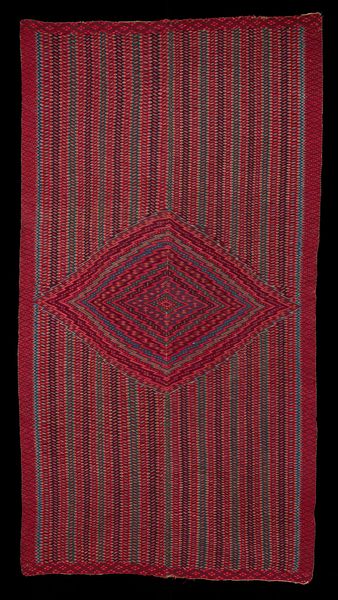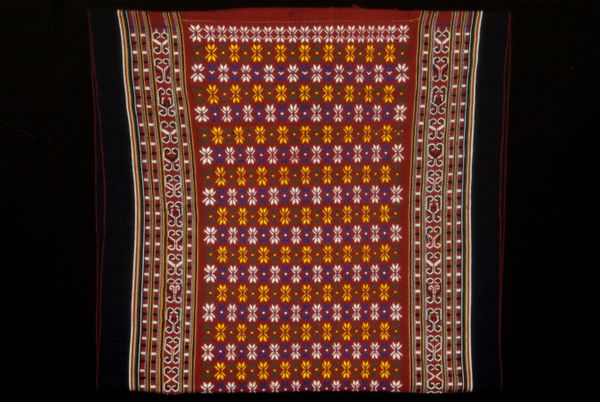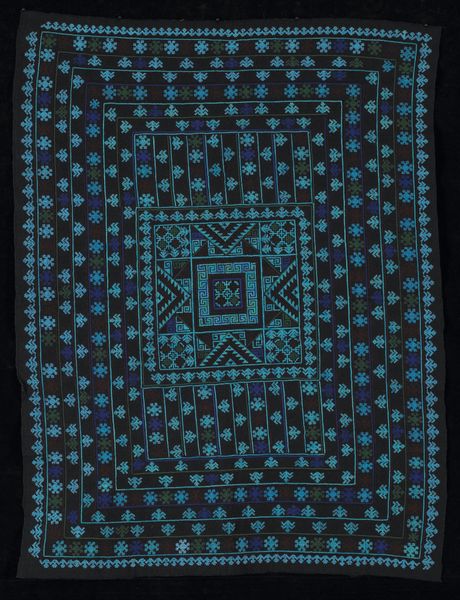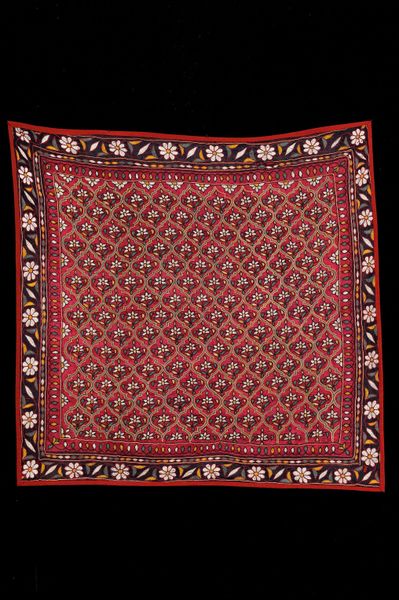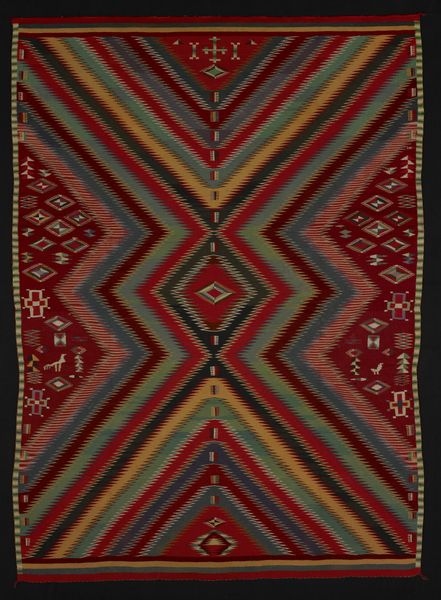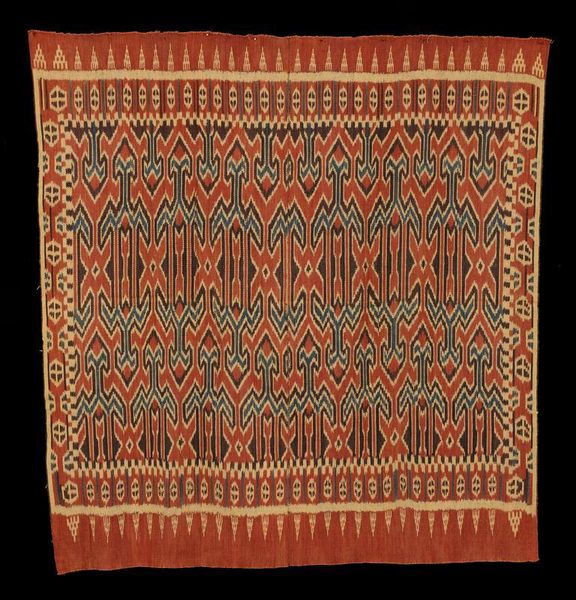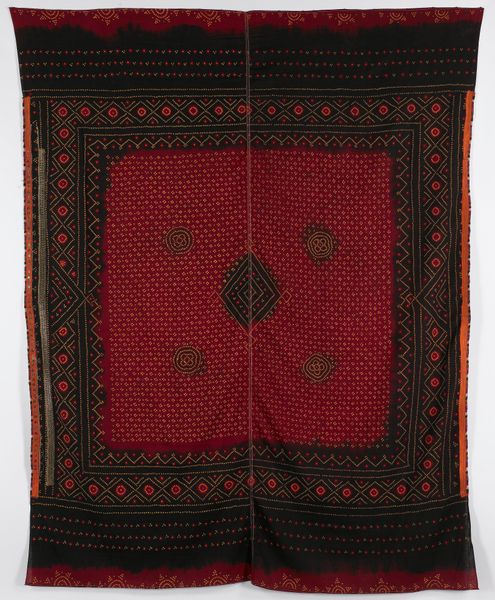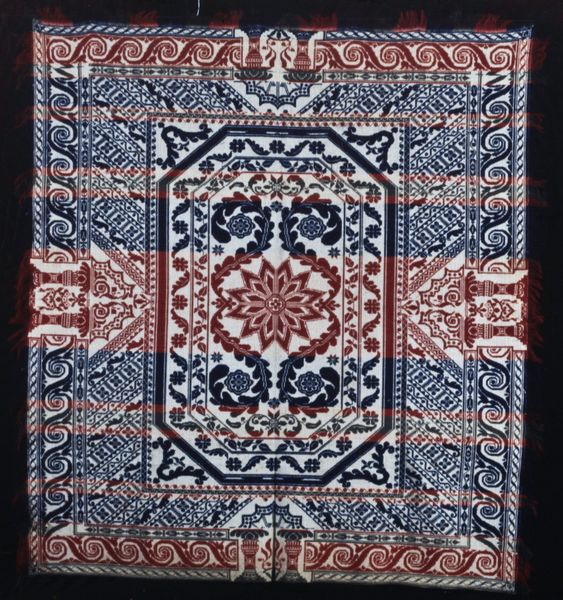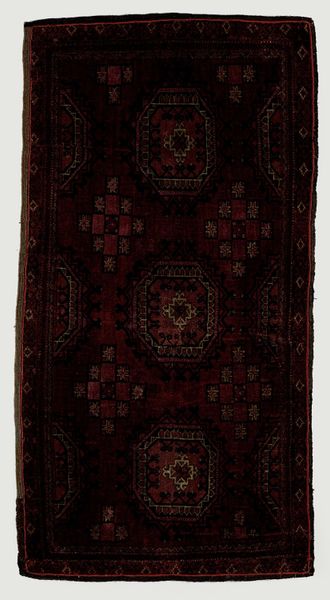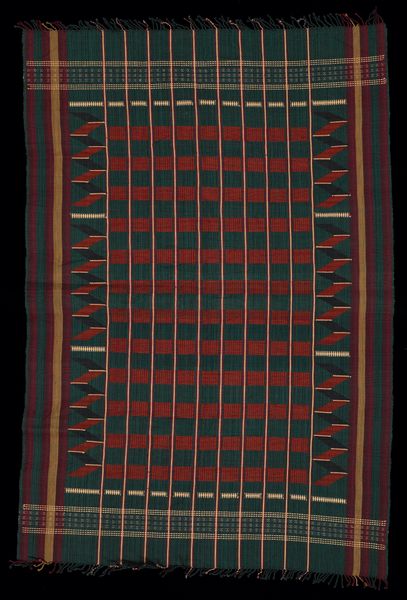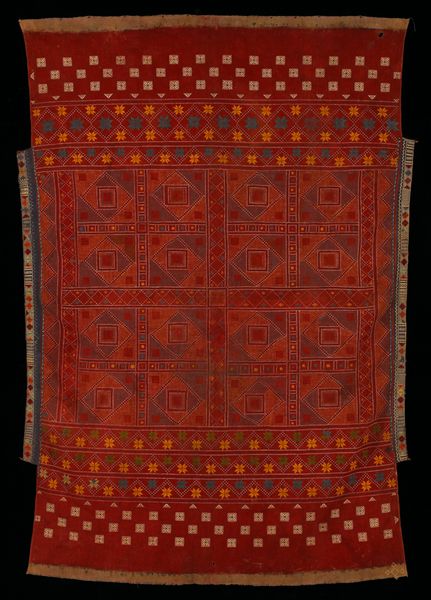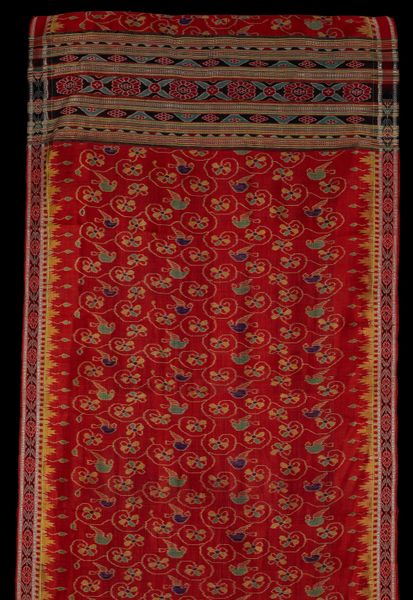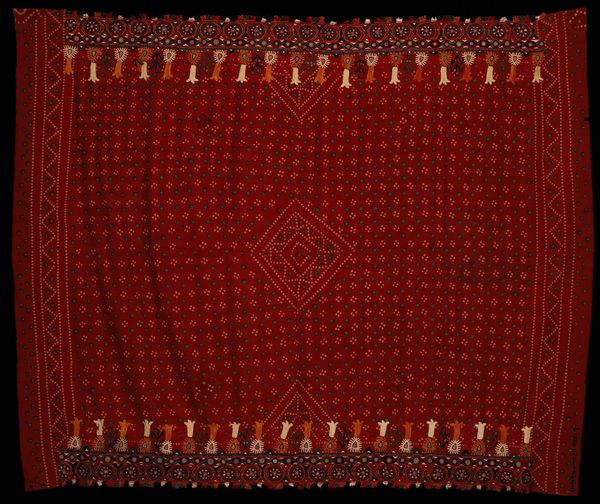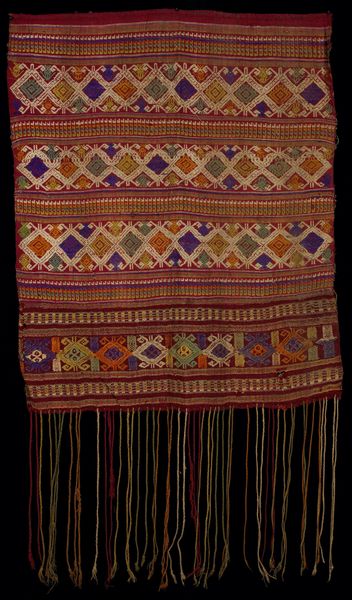
weaving, textile
#
pattern heavy
#
weaving
#
textile
#
geometric pattern
#
abstract pattern
#
geometric
#
repetition of pattern
#
regular pattern
#
pattern repetition
#
textile design
#
layered pattern
#
funky pattern
#
combined pattern
#
indigenous-americas
Dimensions: 95 x 47 3/4 in. (241.3 x 121.29 cm)
Copyright: Public Domain
Editor: Here we have the Saltillo Serape, a textile made of wool and cotton, sometime between 1750 and 1800. It is an interesting piece with a central diamond figure that pops from the striped red background. What do you make of the overall structure? Curator: Its composition is particularly compelling. Notice how the central diamond motif, rendered in concentric, tessellated forms, creates a focal point, while the vertical striations provide a sense of linear continuity and ground the work, despite the intricate detailing. How do you interpret the interplay of geometric shapes? Editor: It's striking how the design almost vibrates with the variations in pattern. What would you say about the artist's employment of materials? Curator: Observe the artist's considered approach in their employment of wool and cotton. Each material, possessing its inherent texture and chromatic receptivity, enhances the overall visual experience, would you agree? Note the layering of thin threads, each dyed a different color. Editor: The subtle variations in the colors create depth, though the colors remain relatively simple. Curator: Precisely, it's through those nuanced color relationships, combined with pattern variation, that the piece achieves a kind of dynamism. Have you considered the visual impact of the woven structure itself? Editor: It adds a layer of complexity – literally and figuratively! Seeing how the artist organized it has really made me rethink how I perceive textiles. Curator: Indeed, the dialogue between surface design and structural elements offers endless interpretive possibilities. Editor: I hadn't really considered that before! This analysis helps me understand this textile a little better.
Comments
No comments
Be the first to comment and join the conversation on the ultimate creative platform.
